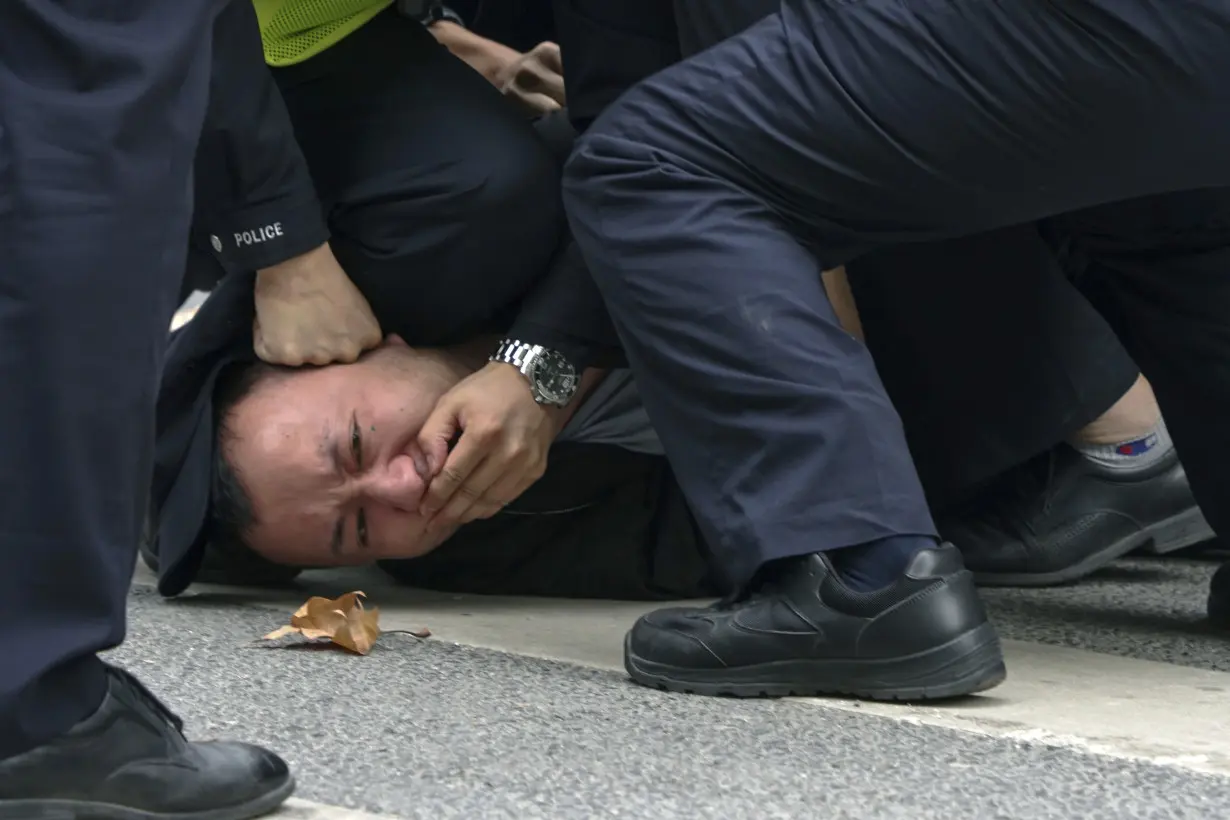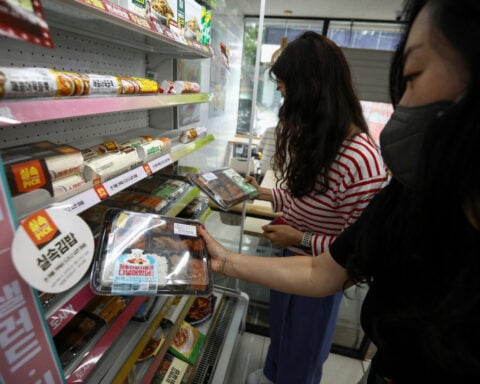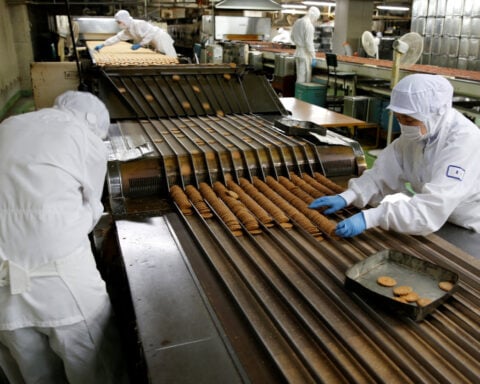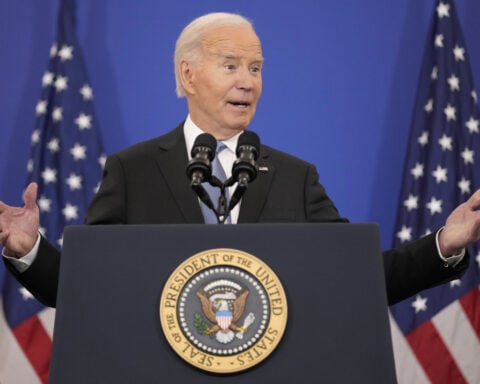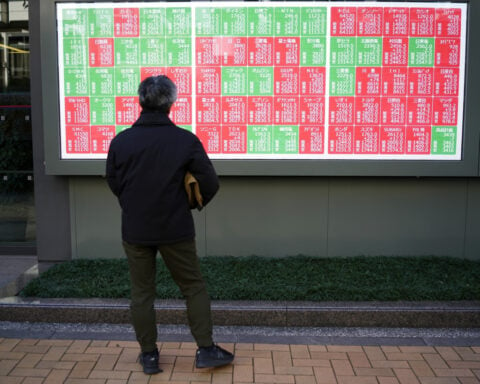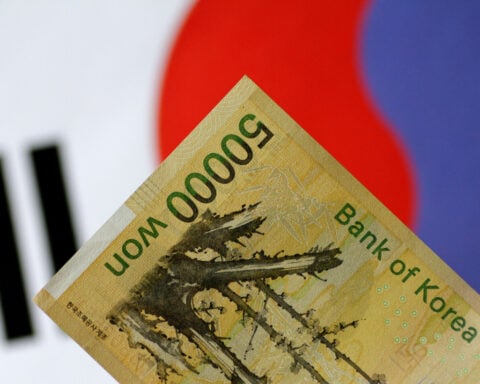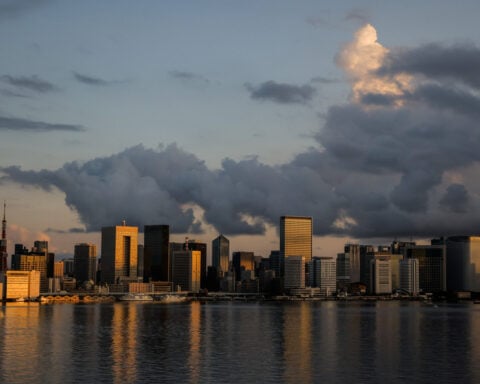BEIJING (AP) — A year ago, Li Houchen was on the streets of Shanghai, hollering “Freedom!” to protest China’s harsh “zero COVID” policy and growing authoritarianism.
He was one of thousands of people demonstrating across China in what came to be called the White Paper movement, after the blank sheets of paper protesters used to represent the country’s strict censorship controls.
Yet one year later, China has all but forgotten the protests. The state reacted quickly, breaking up the marches with arrests and threats and abruptly lifting COVID-19 controls.
The protests were a brief flare of defiance, the most direct challenge to the Communist Party’s authority in decades. For the young people who took part, it was their first protest. Now, many of them are pondering what’s next.
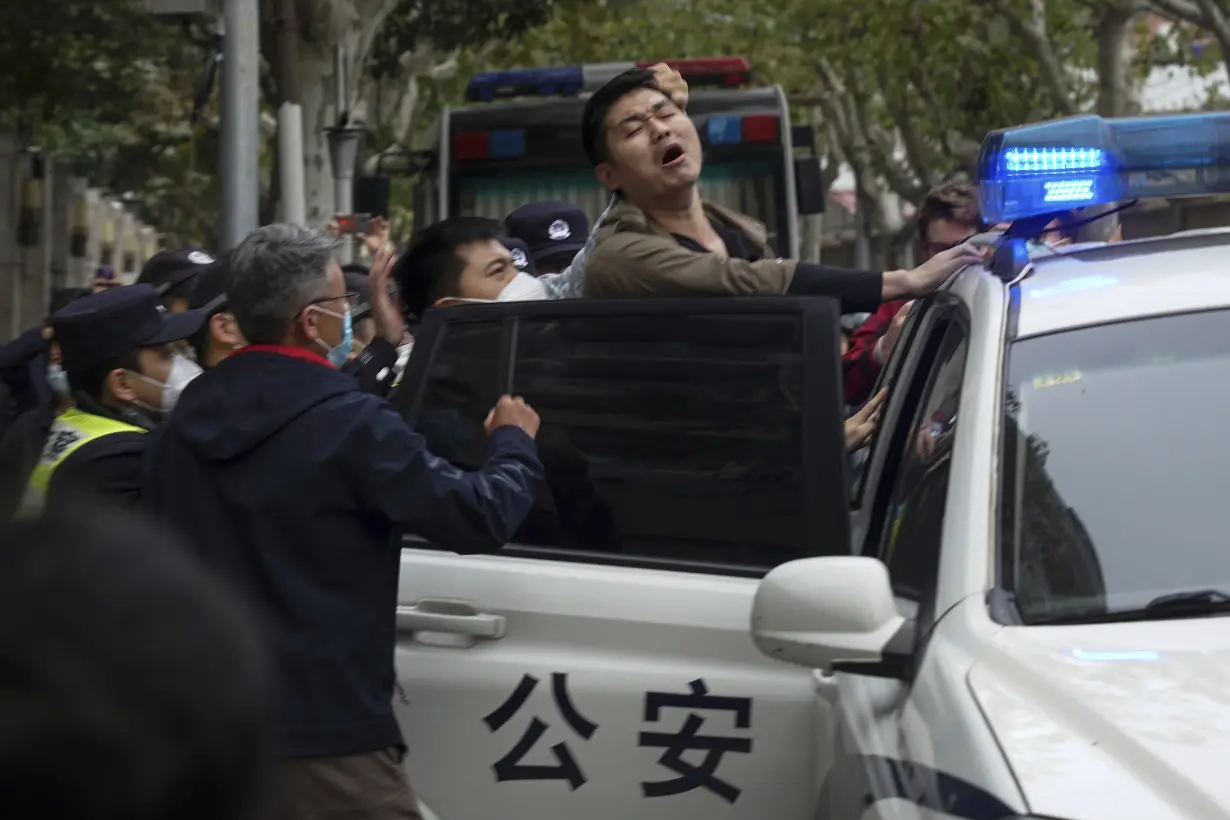
Today, Li lives in Tokyo, fulfilling a vow to himself to leave his homeland and go into exile to document the tumultuous events in China last year. He’s written a 448-page book, “Records of the Plague Year: From The Shanghai Lockdown to the White Paper Revolution,” hoping to fill in the blanks of state censorship.
“People in China easily forget,” Li said. “In China, you’re not allowed to remember.”
___
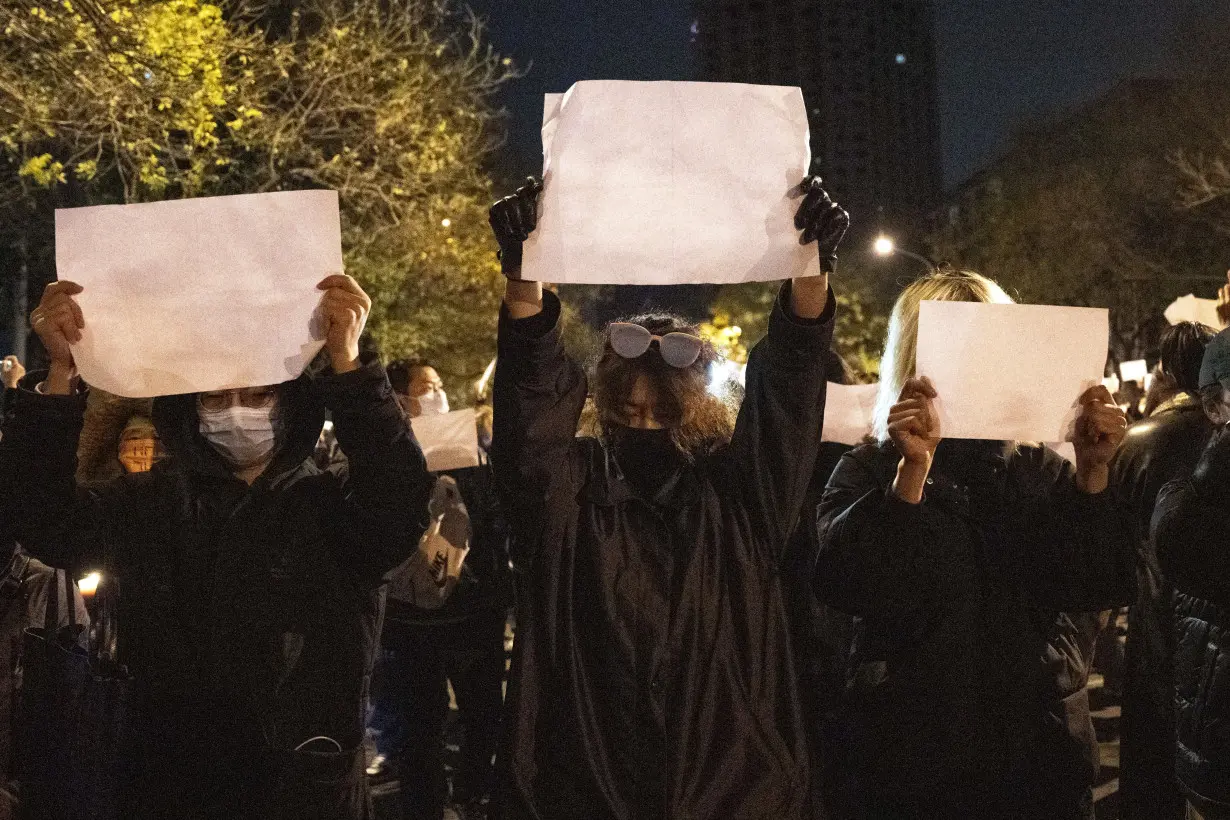
Li, 37, and others of his generation grew up at the height of China’s reform and opening period, when the economy soared and internet chatrooms teemed with critical discussion.
But after hard-line leader Xi Jinping came to power in 2012, things changed, Li said. Lawyers and intellectuals were arrested, critical voices silenced, and the internet, once free, filled with nationalist propaganda instead.
Xi’s crackdown “was a betrayal” for liberals like him, Li said. Xi broke the unspoken compact many thought the government had with its people — that it would bring prosperity and openness, as long as they didn't touch politics.
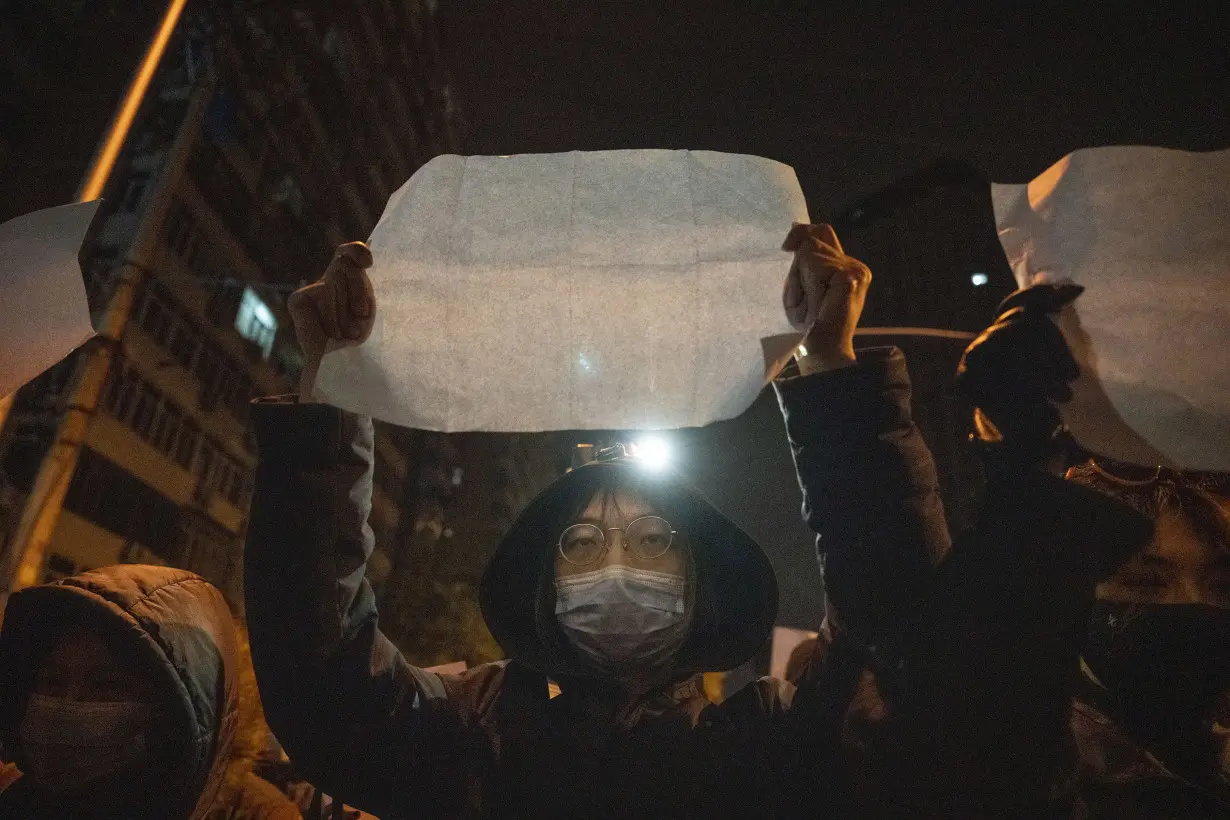
When the coronavirus began sweeping the world, Xi’s tough new approach to governance won support among many in China. For two years, measures like mandatory testing and mass quarantines succeeded in keeping the virus at bay even as it ravaged other countries.
But last year, the virus grew milder but more infectious, making it less dangerous but tough to keep under control. Beijing stuck stubbornly to its zero-COVID controls, resorting to draconian lockdowns to keep the virus from spreading.
A turning point came when the virus spread in Shanghai and the government put the city under lockdown. For two months, residents were trapped in their homes. Some went hungry, while others were grabbed by police and forced into centralized quarantine centers with thousands of others.
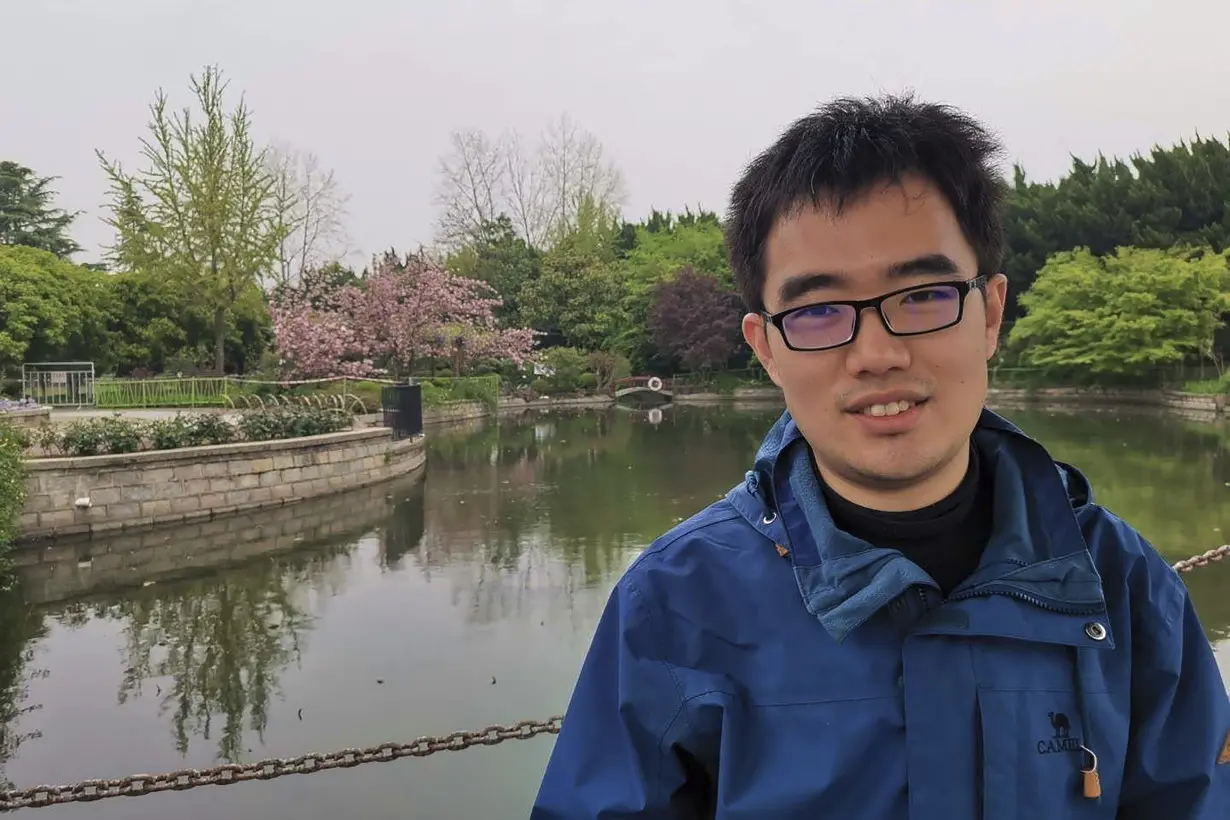
Shanghai was just one of many cities put under brutal lockdowns. But as the most developed and cosmopolitan city in China, its suffering came as an intense shock to its residents, drawing global attention.
It set the stage for the White Paper protests, which started with a deadly apartment fire in Urumq i in China’s northwest Xinjiang region. Many questioned whether those who burned to death couldn’t escape because they were locked in their homes — one of the tactics authorities used to stem the spread of the virus.
Anger flared. United in their frustration with COVID-19 controls, people hit the streets of Urumqi, and students across the country held memorials to mourn the fire’s 10 or more victims.
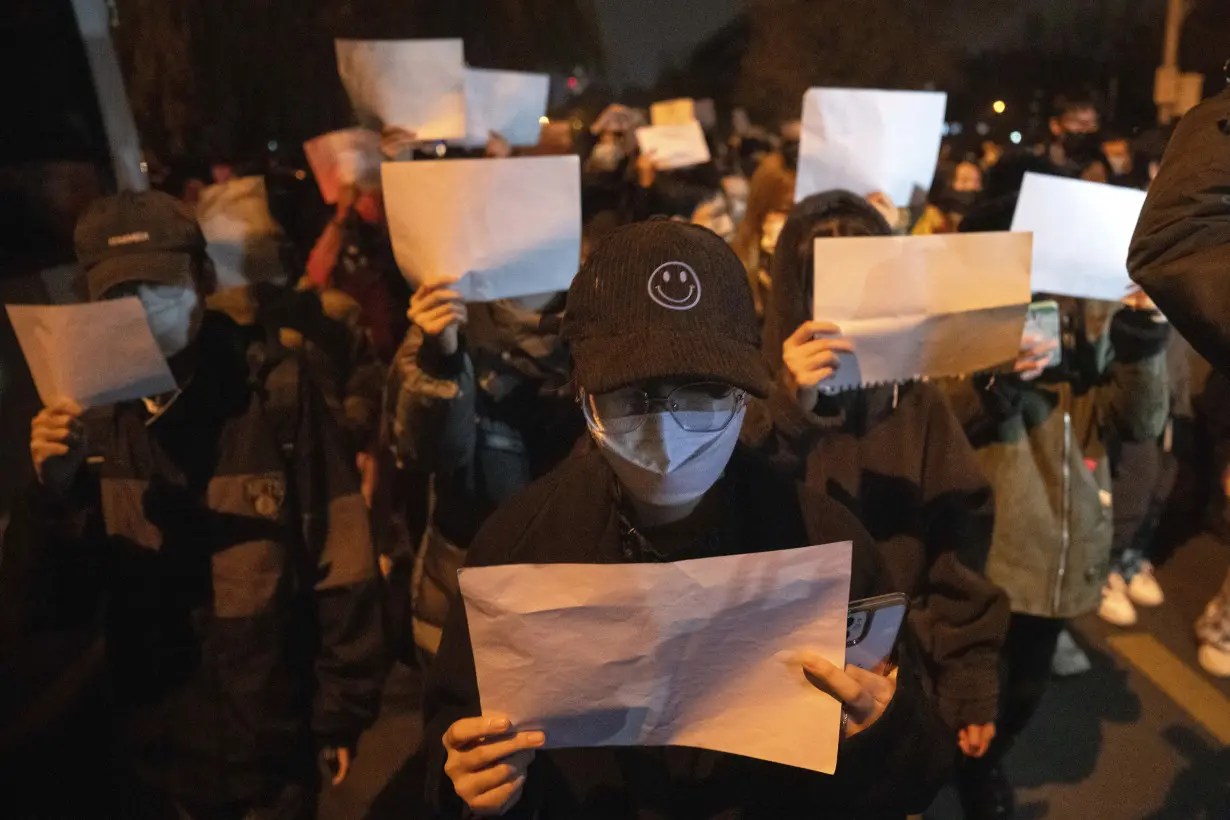
As hundreds crowded one memorial in Shanghai, mourners tussled with police. Then some shouted slogans, escalating until the crowd began chanting: “Xi Jinping! Step down! CCP! Step down!”
Videos of the protest spread online, electrifying those unhappy with the state’s control. The next day, thousands gathered in Shanghai and over a dozen other cities across China, holding up sheets of paper, shouting slogans and jostling with officers.
Li was among them, tears streaming down his face.
“This was the first street protest for my generation,” Li said. “Not in any sense did I expect something like this to happen in China.”
Yicheng Huang, a Ph.D. student, was at the same protest that Sunday. He warned others around him to stand closer to the back to avoid police attention. “I was being very careful that day,” he said.
His caution proved futile as police swept through the crowd. Police dragged him away upside down, he said, scraping his face and jaw, and shoved him into a bus. When a police officer was busy hitting another protester, he seized his chance and escaped.
“Sometimes it doesn’t feel real,” he said. “It was a little like dreaming.”
The protesters were scattered, scared, and easily dispersed. Under Xi, the space for civil society has vanished, and pervasive digital surveillance has kept dissent under tight control.
___
The government moved swiftly to quell discontent. Days after the protests, Beijing announced it was dropping many measures against the virus — a victory for the protesters.
But then came the crackdown. In cities across the country, police opened investigations into those who had participated. Protesters were hauled in for questioning, police knocked on doors of relatives, and some were detained weeks or months after the brief flare of anger.
Even now, one year after the protests, authorities continue harassing participants and their families, according to six people who spoke with AP.
Huang, the arrested student who escaped, made it to safety in Germany after the protests. But after a media interview, his mother was taken for interrogation.
Despite the risks, he continues to speak out. He said he wants everyone to remember, not just the protests but all the things that happened throughout the pandemic leading up to the fateful weekend.
“The entire zero-COVID policy, from Li Wenliang to the Huanan Seafood market, 2021, 2022…to the White Paper Movement, to this sudden opening, the fact that an entire society can collectively forget this,” Huang said. “A country like this is terrifying.”
One young man, who asked to be identified by his online persona QiangGuoFanzei to avoid further government retribution, said his father was visited twice by authorities in China this year, long after he stood in front of San Francisco’s Chinese Consulate last November and shouted “Xi Jinping, step down!” Out of fear, he cut off contact with his father and doesn’t plan to return to China, he said.
A graduate student in the U.S. who asked to be identified by his last name, Lau, because of fear of harassment by Chinese nationalists, said he was taken by police for interrogation twice when he visited his relatives in July this year in China. Officers took him to a hotel and grilled him past sunset about his participation in political events and discussions online, he said.
Zhang Junjie, a 19-year-old freshman at Central University of Finance and Economics in Beijing, photographed himself holding up a blank sheet of paper in a solo protest.
His school forced him to sign a waiver claiming he was ill, then called his father to take him home. Back home, Zhang was institutionalized, confined to a mental hospital for weeks at a time. Eventually, he fled to New Zealand and has vowed never to come back.
___
The rare burst of nationwide protests did not transform into lasting political change. Though Beijing dropped COVID-19 controls, Xi only strengthened his grip on power.
After China reopened, the government declared victory over the virus. The protesters scattered, many abroad. Others have fallen silent. Today, few want to speak of the past.
Li, the podcaster in Tokyo, said he is “a little disappointed” that the protests petered out. After he started sharing his book on the protests, many asked, “Why are you bringing this up again? It’s nonsense to bring up these memories.”
But Li spent a year pondering the meaning of the protests, and he believes they were a watershed.
No, China wasn’t about to succumb to revolution. Yes, much of the country wants to forget.
But for many, zero-COVID, the protests, and the chaotic exit from virus controls that followed, shattered the illusion of state competence and China's unstoppable rise.
“It broke the narrative that China would become the new superpower and beat the U.S.,” Li said. “It ended the Chinese dream.”
___
Wu reported from Bangkok.

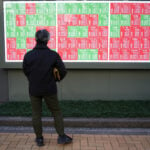 Stock market today: Asian stocks mixed ahead of US inflation data
Stock market today: Asian stocks mixed ahead of US inflation data
 TikTok seeks to reassure U.S. employees ahead of Jan. 19 ban deadline
TikTok seeks to reassure U.S. employees ahead of Jan. 19 ban deadline
 US won't seek charges in unarmed Black motorist Ronald Greene's fatal 2019 arrest
US won't seek charges in unarmed Black motorist Ronald Greene's fatal 2019 arrest
 Euro zone households could increase consumption, ECB chief economist says
Euro zone households could increase consumption, ECB chief economist says
 Foreigners sold South Korean equities last month by most since early 2020
Foreigners sold South Korean equities last month by most since early 2020
 As fires ravage Los Angeles, Tiger Woods isn't sure what will happen with Riviera tournament
As fires ravage Los Angeles, Tiger Woods isn't sure what will happen with Riviera tournament
 Antetokounmpo gets 50th career triple-double as Bucks win 130-115 to end Kings' 7-game win streak
Antetokounmpo gets 50th career triple-double as Bucks win 130-115 to end Kings' 7-game win streak
 No 97 Laura Siegemund upsets Olympic champion Zheng Qinwen at the Australian Open
No 97 Laura Siegemund upsets Olympic champion Zheng Qinwen at the Australian Open
